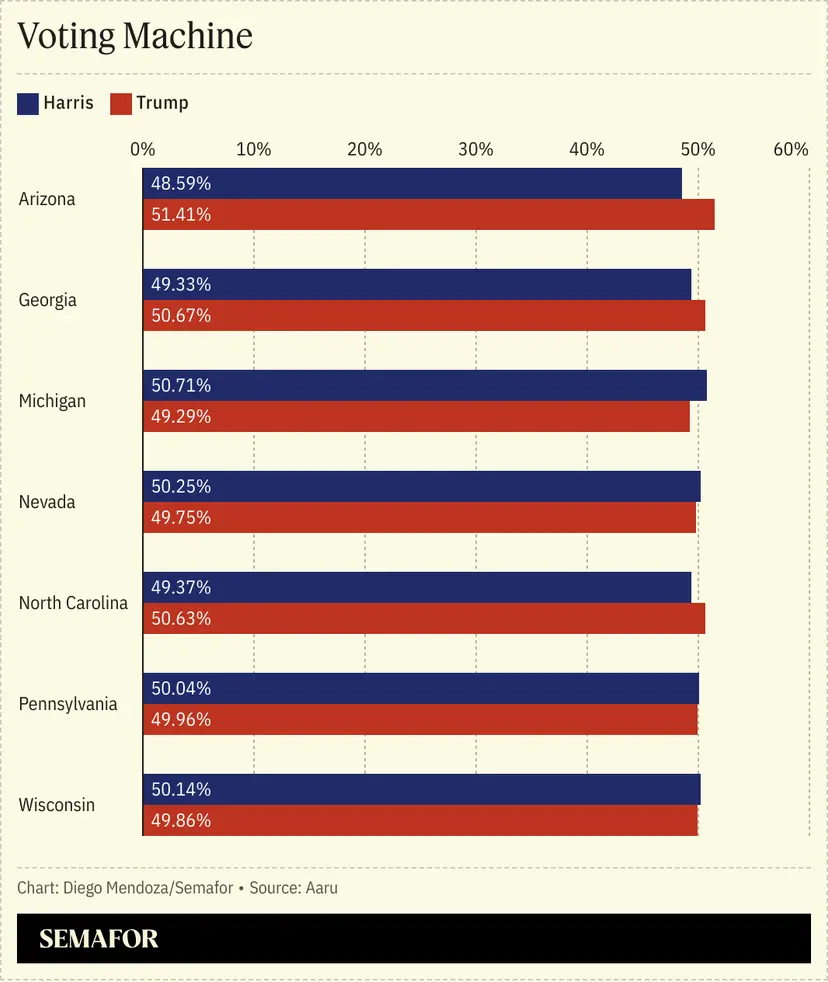Trump or Harris? AI predicts who will win the US election
 AI predicted who would win the US election (collage: RBC-Ukraine)
AI predicted who would win the US election (collage: RBC-Ukraine)
The 2024 US presidential election has already begun. The main candidates in the race are Kamala Harris and Donald Trump. Studies based on artificial intelligence have already predicted who will become the new head of the White House, reports Semafor.
Young entrepreneurs who believe that their AI chatbots can better model human behavior than humans themselves agreed to test their model in the 2024 election.
Two college dropouts who founded the company Aaru are using census data and other demographic information to create thousands of AI voter avatars, each with hundreds of personality traits to mimic real people.
The bots (agents) gather information from news and other sources that these people might consume and then are asked questions about their preferences - in this case, who they would vote for. Fink and Koh say that the tests they conducted show that their system is incredibly accurate and much cheaper and faster to use than traditional polls.
They recreated the electorate in key states using representative bots - thousands or more in each state - and surveyed them about their preferences. The models had access to news up until midnight on Sunday, so they could hear about Donald Trump's rally in Pennsylvania and Kamala Harris's in Michigan.
They ran simulations several times and estimated Trump's probability of winning Arizona at 73.3 percent, North Carolina at 62.1 percent, and Georgia at 61.8 percent. At the same time, Harris's chances of winning in Michigan are 63.3 percent, Nevada at 53.4 percent, Pennsylvania at 52.4 percent, and Wisconsin at 50.9 percent.

How Aaru's bots vote in the presidential race in seven swing states (photo: Semafor)
If only the bots vote, it will be a tight race, with Kamala Harris winning by a narrow margin.
Polling is, at best, an imprecise science that attempts to guess the population's intentions by sampling a small group, which poses numerous potential errors at every stage of the process, especially as fewer people today are willing to respond to surveys.
The agents of Aaru, despite their human shortcomings, can always be contacted, and with a sufficient number of them, their aggregate responses theoretically might reflect reality.
In any case, Aaru's system does not need to outperform traditional polls to be valuable; it is enough to be on par with them in accuracy - or at least not worse - to win in terms of speed and cost.
As of the first half of November 5, the first votes in the presidential election have already been counted in the small township of Dixville Notch (New Hampshire). Harris and Trump received an equal number of votes.
Read also Coin tossed: Will Ukraine see good news after US presidential election.

